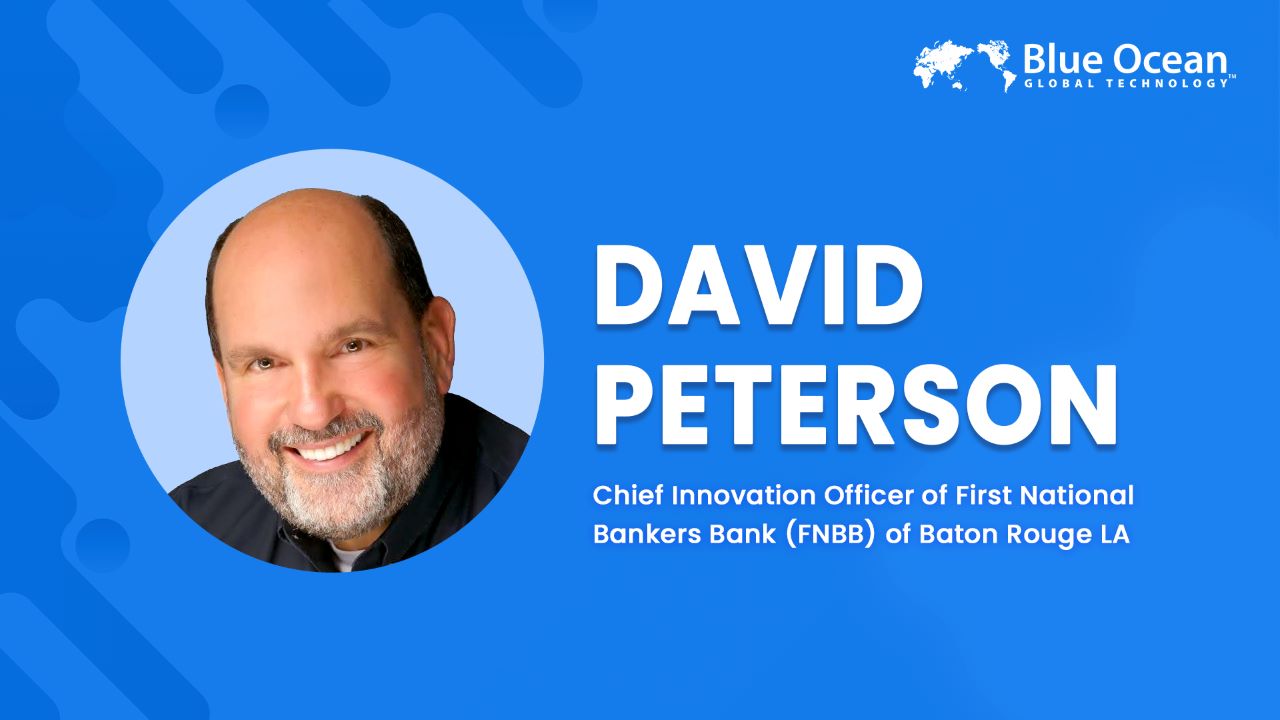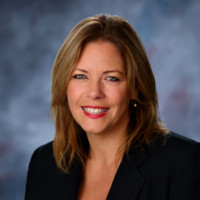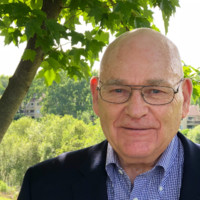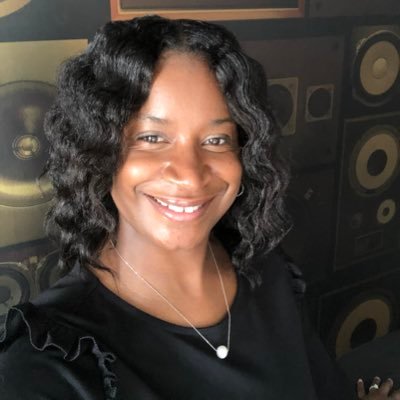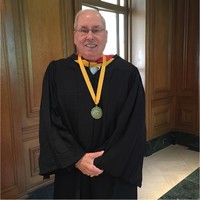About David Peterson

David Peterson has inspired countless audiences to rethink how innovation happens in their organization. His insight and actionable content helps leaders foster a culture of innovation that encourages workforce diversity and instills accountability for driving growth. As the Chief Innovation Officer of First National Bankers Bank (FNBB) of Baton Rouge LA, David is a tireless advocate for rethinking the role of innovation in a corporate setting. David understands the critical need to combat status quo thinking to achieve sustainable profits and competitiveness in any industry. He shares real world strategies and tools to foster a creative mindset, convert creativity into innovation and empowers attendees to be innovative where they are regardless of job function or title.
Peterson’s Innovation Driven Growth (IDG) content focuses on assisting enterprises in igniting enterprise-wide innovation. Content includes innovation keynotes, workshops and challenges. David’s focus at FNBB is creating an environment where every individual is encouraged to look for innovations that spur growth, regardless of their size. David is a sought-after speaker at financial services regional and national industry events. David is also the author of the best-selling book Grounded: Anchor Management for Strategic Leadership and Effective Decision-Making (Little River Publishing, 2016). His approach to strategic innovation and fun engaging workshops and thinking challenges has been praised by C-Suite executives, entrepreneurs and millennials.
David is the former founder and CEO of Goldleaf Technologies, a leading provider of electronic payments software and a pioneer in the fintech industry. David also served as EVP of Q2 and President of U.S. Dataworks. He currently serves on the boards of the American Cannabis Bankers Association (ACBA), and ArgosRisk. David is also a serial entrepreneur, having created multiple start-ups in retail and professional services.
Blue Ocean: Tell us about your professional journey. What inspired you to pursue a career, and what continues to fuel your passion for the profession today?
David: I have worked in financial technology for 43 years, starting as a programmer at a company that developed core banking software and eventually started several fintech companies providing payments and electronic banking software for community banks.
I’ve spent years consulting for banks, credit unions, and fintechs, to bring innovation and deliver better services. The financial industry tends to be conservative, even as the rest of the world rapidly adopts data-driven and AI-powered solutions.
Currently, I’m the Chief Innovation Officer at First National Bankers Bank in Baton Rouge, Louisiana. We’re a correspondent bank serving institutions across the Southeastern United States. My job is to find creative and innovative ways to enhance how we serve other banks.
Blue Ocean: What does a typical day look like for you?
David: I dedicate a significant portion of my time to research new technology and regulatory changes impacting the financial industry. I start each day scanning industry news. Since I don’t manage daily operations, my work revolves around strategic initiatives. I work on advocacy, presentations for banking associations, and writing feature articles that encourage bankers to approach the industry with a more innovative mindset.
Lately, my focus has been on helping banks responsibly explore AI. Many FIs are hesitant, while others are experimenting with it. I’m building frameworks for secure, practical use of tools like ChatGPT like how to protect sensitive data, increase efficiency, and use AI to support human effort.
I also receive calls from clients with technology-related questions and from our Executives and sales professionals requesting explanations on how a new technology works. Part of my role is translating tech into actionable insights.
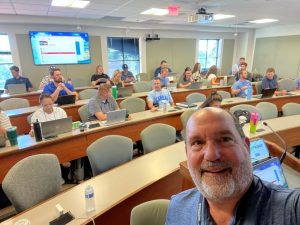
Blue Ocean: Which emerging trends in your profession most excite you?
David: Instant payment is a huge issue right now. The United States is still catching up globally. With many small community banks, it’s hard to implement change when there is not significant customer demand.
We now have two real-time payment systems: RTP from The Clearing House and FedNow from the Federal Reserve. Both enable instant transfers, but banks must choose whether or not to adopt them. At FNBB, we’ve developed tools to support banks to get onboard with either.
AI is also gaining momentum. Cloud-native banking platforms are challenging the dominance of traditional core banking systems. These new platforms promise more agility, scalability, and innovation. I’m working closely with banks on frameworks for evaluating and adopting these technologies like instant payments, AI, cloud systems, and even digital currencies, including Bitcoin, stablecoins, and cryptocurrencies. As banking evolves, institutions need to stay informed and proactive.

Blue Ocean: Can you walk us through a specific challenge and explain your approach to resolving it?
David: The largest banks in the United States, such as Wells Fargo, Citi, Chase, Bank of America, and Capital One, own The Clearing House and its RTP (Real-Time Payments) network. This worried smaller banks, who feared being left out. So, banks like ours urged the Federal Reserve to launch FedNow as a more accessible alternative.
FedNow launched in July 2023. It’s live, but adoption is slow. Many banks say “We don’t see the demand—no customers are asking for it.” But these same institutions were the ones that pushed for an alternative to RTP. Now that it’s here, they hesitate. My challenge is to help them see the big picture: customers will expect banks to provide instant, seamless payments. Waiting could mean losing customers to big banks or fintech companies.
I encourage banks to act early but strategically. For example, FedNow includes a “Request for Pay” feature, letting businesses send digital requests for payment (RFP) instead of mailing an invoice. That’s an immediate value-add. Offering RFPs can attract new business customers and expose retail users to faster payment systems. My role is to help banks see the short-term and long-term value and move from cautious to strategically proactive.
Blue Ocean: You’ve earned a strong reputation. How do you and your team continue to stay ahead in a competitive industry?
David: I stay actively engaged in the broader banking and fintech community. I regularly attend industry events, participate in collaborative and advocacy efforts with other fintech leaders, and maintain a strong social media presence where I share insights and engage with a broad audience. These platforms not only allow me to stay informed but also allow me to spark dialogue and exchange ideas with professionals from all corners of the industry.
Getting bankers to take a step is a significant challenge. So, I stay at the forefront of any success story that’s happening, even if it’s with a competitor, and try to advocate and say, “See what those guys are doing? That’s smart. You should consider adopting that mentality.”
This is where open-minded collaboration becomes essential. I actively seek conversations with people who disagree with me. Innovation happens when we combine diverse perspectives, even if it’s by taking a piece of one idea and merging it with another. It’s less about having the perfect solution from the start, and more about fostering a culture that encourages ideas to emerge and evolve. A phrase that I coined, which is “innovation is creativity expressed, manufactured, and consumed”. What makes something innovative is when you have a creative idea, express it, meaning document it, manufacture it, meaning create it, build it, and then consumed; the result has utility, people use it. Then, you have true innovation. Part of what I’m doing is getting that concept into the banking lexicon, where they appreciate and even encourage people to be more creative as the first step towards innovation.

Blue Ocean: What core values or principles do you believe every great professional should uphold, regardless of their practice area?
David: In my book called Grounded, I discuss three shipwrecks to explore the concept of being grounded, which has a double meaning. On one hand, being grounded can reflect stability, wisdom, and emotional balance. Then there’s also the negative side, like when you ran aground, you shipwrecked, or you smashed against the rocks. I identify three core traits we should be grounded in: calm focus, thoughtful response, and regard for others.
Too often, we react emotionally instead of thinking through a response. And many people don’t act out of regard for others. They act out of self-interest. That generally leads to poor outcomes.
Conversely, I also discuss what can negatively ground people: lack of courage, lack of initiative, and lack of perseverance. These traits hold people back. In my work with a prison ministry, I’ve met many individuals who were told from an early age that they would never amount to anything—and they internalized that message. They became negatively grounded by a belief in their limitations, and few ever find a way to break free from it.
We should accentuate the positive grounded in principles and then eliminate or minimize the negative grounded by principles. This is especially true for young professionals who want to achieve their true potential.
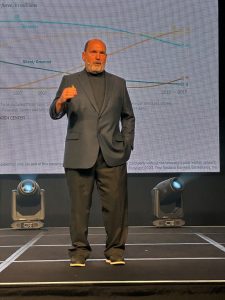
Blue Ocean: What advice would you offer to the youth who aspire to grow a career in your industry?
David: It’s a great time to be inquisitive and driven. I tell young people to find something they’re passionate about, then build a life around it. The goal is creating a life where you’re productive, fulfilled, and contributing to society in a meaningful way. And in this era, it’s more achievable than ever, especially as industries adapt to new technologies.
Education is changing. You can learn almost anything with a phone and internet connection. The traditional higher education model may not be necessary for every career.
Take the example of a 16-year-old boy in Sub-Saharan Africa who solved a crop problem by experimenting with seeds. Monsanto ended up licensing his invention. He had no formal training in agronomy and hadn’t attended college—he simply had a problem to solve, curiosity, and the willingness to learn.
Of course, some professions still require formal degrees. But for countless other fields, if you can demonstrate skill, creativity, and results, degrees matter less than the skills.
Blue Ocean: What hobbies or interests do you enjoy outside of work?
David: I play a lot of pickleball. It’s a fun and social game. I don’t golf much anymore, but when I teach at the graduate banking school in Colorado, I enjoy fly fishing with friends.
I also periodically serve as an expert witness on electronic banking and payments, especially when cases could set major precedents for community banks. I take that role seriously and it’s part of how I support the industry.
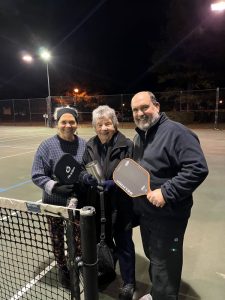
Blue Ocean: Is there a guiding principle, legal philosophy, or quote that has significantly influenced your career and life?
David: There’s a story I often share about Viktor Frankl, a Holocaust survivor. He and a few others decided to meet every injustice with love and affection. They believed the only thing you can fully control is how you respond.
Despite the cruelty they faced, they responded with dignity. The guards tried to break them, but couldn’t. They faced hatred and responded with love. Interestingly, every person in that group survived.
Viktor Frankl wrote that: “You choose every day, every second of every day, how you respond to each and every action, thought or word that is directed in your way.” If the whole world were thinking that way, many of the conflicts we have across the globe would be dramatically reduced.
Conclusion
David Peterson’s career reflects a thoughtful, forward-looking approach to innovating the banking experience. His core values and deep commitment to service exemplify how to approach a professional life and lead with purpose in the modern era of technology.
Do you have a personal or professional story that can inspire other people into becoming the best version of themselves?
You are welcome to share your journey with our audience.

